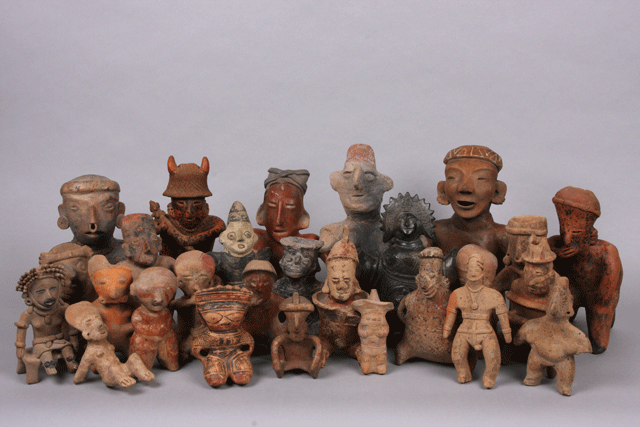

Photograph by B. Bernard
Archaeologists tell themselves to approach antiquities without
passion—they're not there to impose their own aesthetics
on the past, but to study it. Even so, on one occasion we were
struck by the ability of certain artifacts to convey a sense of
connection and even (in a non-scientific sense) understanding.
A graduate student
had set out the museum's collection of West Mexican human figurines
on a table, in order to study them, and the visual effect was
strikingly like that of an actual group picture: each person
recognizably an individual, yet part of a visibly
common humanity. This photo does not show as big a crowd as
the one created by the graduate student but here as well, the
grouping conveys (at least to us) a sense of the shared
experience that is humanity.
In a few cases, archaeologists have found figurines arranged in groups, indicating scenes. According to Joyce Marcus' "Rethinking Figurines," such arrangements could represent ancestors, and might have been part of household scenes.
In this portrait, not every figurine is from West Mexico. Can you tell which? (For the answer, please click here.) Visual links to individual portraits can be found lower down on this page. Or, for additional group pictures, please click on one of the thumbnails immediately below.
TWO MORE GROUP PORTRAITS...
...AND LINKS TO INDIVIDUAL PORTRAITS
Click on an image to call up the portrait page.
Copyright © Maxwell Museum of Anthropology, University of New Mexico. A high-resolution verson of any photograph may be ordered from the Maxwell Museum's photo archives. Please make note of the catalogue number. For more information please visit the photo archives web page
Page last revised on March 29, 2010. Please report problems to toh@unm.edu